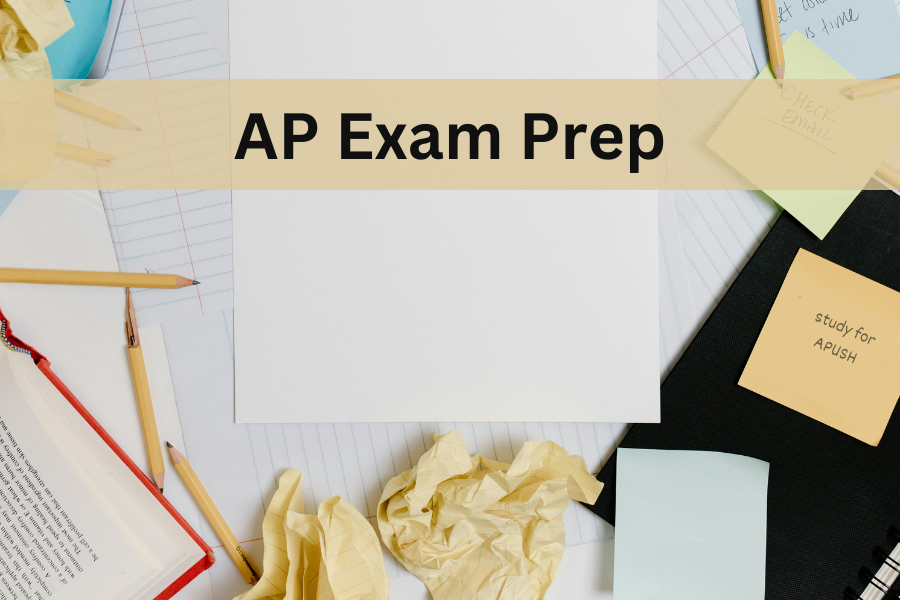13 Life-Changing AP Exam Prep Ideas That'll Get You the Best Scores
AP exam season can be stressful, but being prepared makes everything easier. Here are some amazing AP exam prep ideas for you.

AP exams coming up and feeling a bit overwhelmed? Don’t worry! With the right prep strategies, you can tackle these tests like a pro. Whether you’re shooting for a top score or just want to make sure you pass, having a solid game plan is crucial. And the good news is, there are tons of effective ways to get ready, from crafting a killer study schedule to using the best resources out there.
Here are some of the most awesome AP exam prep tips to help you make the most of your study time and boost those scores. We’ll chat about handy study techniques, how to stay organized, and ways to keep your motivation high. Plus, we’ll point you toward some great resources like online courses, study guides, and tutoring options that can give you that extra boost.
So, whether you’re a seasoned AP veteran or gearing up for your first exam, these prep ideas are here to help you crush it. Grab your study materials, get comfy, and let’s jump into the ultimate guide for acing your AP exams!
This post is all about the best AP exam prep tips.
AP Exam Prep
1. Start Early

Starting your AP exam preparation early is one of the most effective ways to ensure success. Ideally, start your study plan three to four months before the exam date. This early start allows plenty of time to thoroughly review the course material, fill any knowledge gaps, and lay a solid foundation. To begin, go over the syllabus for each AP subject to understand the scope and depth of the material covered. Then, devise a comprehensive study plan that divides the material into manageable chunks and assigns specific topics or chapters to each week. This method not only eliminates last-minute cramming but also promotes a more relaxed and consistent study routine. Starting early allows you to pace yourself and reduce stress.
2. Create a Study Schedule

A well-structured study schedule is critical for successful AP exam preparation. Begin by determining how much time you have available each week prior to the exam.
Set aside specific time slots for studying various subjects or topics, and be realistic about how much you can complete in each session. Use a calendar or planner to plan your study sessions, including long study blocks for in-depth exploration of complex topics and shorter sessions for quick reviews or practice questions.
To avoid burnout, make sure to schedule breaks and leisure activities. Following a consistent and organized schedule will ensure that you cover all necessary material, stay on track with your preparation, and approach the exam confidently.
3. Use Official AP Study Guides

Official AP study guides are invaluable resources for preparing for exams. These guides are created by the College Board, the organization that administers the AP exams, and are specifically tailored to the test's format and content.
Purchasing these guides allows you to become familiar with the exam's structure and the types of questions you'll face. In addition to sample questions and practice tests, official study guides frequently include detailed explanations and strategies specific to each AP subject.
By incorporating these guides into your study routine, you will be able to gain a better understanding of what to expect on test day, practice with authentic materials, and develop effective strategies for navigating the exam's various sections.
4. Take Practice Exams

Taking full-length practice exams is one of the most efficient ways to prepare for AP tests. Practice exams simulate the actual test-taking experience, allowing you to become accustomed to the format, timing, and types of questions you will encounter.
When taking practice exams, try to replicate exam conditions as closely as possible by timing yourself, working in a quiet environment, and avoiding distractions. After completing a practice test, carefully review your answers to identify and explain where you made mistakes.
This review process is critical for learning from mistakes and improving your test-taking strategies. Regularly incorporating practice exams into your study plan allows you to track your progress, manage your time effectively, and gain confidence for the actual test.
5. Focus on Weak Areas

Identifying and focusing on your weak areas is critical for successful exam preparation. Begin by assessing your strengths and weaknesses in each subject, which can be done through practice tests, quizzes, or reviewing previous performance.
Once you've identified the topics or concepts that present the most difficulty for you, devote more study time to them. Seek out additional resources, such as online tutorials, textbooks, or tutoring, to help fill these gaps. Breaking down complex concepts into smaller, more manageable chunks and practicing with specific exercises can also help.
Focusing on your weaknesses and actively working to improve them will improve your overall understanding and increase your chances of passing the exam.
6. Use Online Resources

Online resources provide a wealth of additional help with AP exam preparation. Khan Academy, Coursera, and a variety of educational websites offer free or low-cost courses, practice exercises, and video tutorials.
These resources can help you with your studies by providing alternative explanations, interactive tools, and additional practice materials. Many online resources include practice quizzes, video lessons, and forums where you can ask questions and get answers from teachers and classmates.
Integrating these online resources into your study routine allows you to gain a broader perspective on the material, improve your understanding, and access a variety of learning tools tailored to your specific needs.
7. Practice Essay Writing

Practice your essay writing skills before taking AP exams with essay sections. Begin by writing essays on a variety of topics, focusing on structuring your arguments clearly and effectively.
Create a strong thesis statement, back up your arguments with relevant evidence, and make sure your essay is well-organized and follows a logical flow. Practice writing essays in the allotted time to simulate exam conditions and improve your writing speed. After writing each essay, check it for clarity, coherence, and grammatical accuracy. Seek feedback from teachers, peers, or tutors to identify areas for improvement.
Regular practice will help you hone your writing skills and prepare you to take on the essay portion of the exam with confidence.
8. Teach Someone Else

Teaching someone else what you've learned is an effective way to reinforce your own understanding of the subject.
Find a friend, family member, or study partner and explain key concepts or work out problems together. This process allows you to clearly articulate your knowledge and identify any gaps in your understanding. Teaching others requires you to break down complex concepts into simpler terms, which improves your understanding of the material.
When you successfully teach a concept, you demonstrate a thorough understanding of it. This technique not only consolidates your knowledge but also increases your confidence as you prepare for the exam.
9. Stay Healthy

Maintaining good physical and mental health is essential for effective AP exam preparation. Ensure that you get sufficient sleep each night. It's important to also remember a well-rested mind is more alert and better able to retain information.
Eat balanced meals and stay hydrated to keep your energy levels up and support cognitive function. Incorporate regular physical activity into your routine to reduce stress and improve concentration. Additionally, take time for relaxation and activities you enjoy to prevent burnout and maintain a positive mindset.
A healthy lifestyle supports better focus, memory retention, and overall well-being. Overall, all of these contribute to a more successful exam preparation experience.
10. Review Class Notes

Regularly reviewing your class notes is a good way to reinforce and retain what you've learned. Class notes frequently highlight the most important concepts and topics covered in lessons, making them an excellent study tool.
Set aside time every week to review your notes, summarize key points, and clarify any areas of confusion. Consider creating additional study tools, such as summaries or concept maps, to supplement your notes.
Consistently reviewing your class notes keeps the material fresh in your mind. It also ensures you're ready for any questions that may appear on the exam.
11. Practice Multiple-Choice Strategies

Developing effective strategies for tackling multiple-choice questions can significantly improve your performance on the AP exams.
Learn techniques such as eliminating obviously incorrect answers, identifying keywords in questions, and making educated guesses when necessary. Practice these strategies with sample multiple-choice questions to become more adept at answering them efficiently. Familiarity with the question format and understanding common traps or distractors can help. It will make it easier to navigate the exam more confidently and accurately.
By mastering multiple-choice strategies, you can enhance your ability to approach questions with precision and improve your overall score.
This post was all about the best AP exam prep tips.
Related Post You Might Like: The Ultimate Guide on: How To Get Straight A's in High School